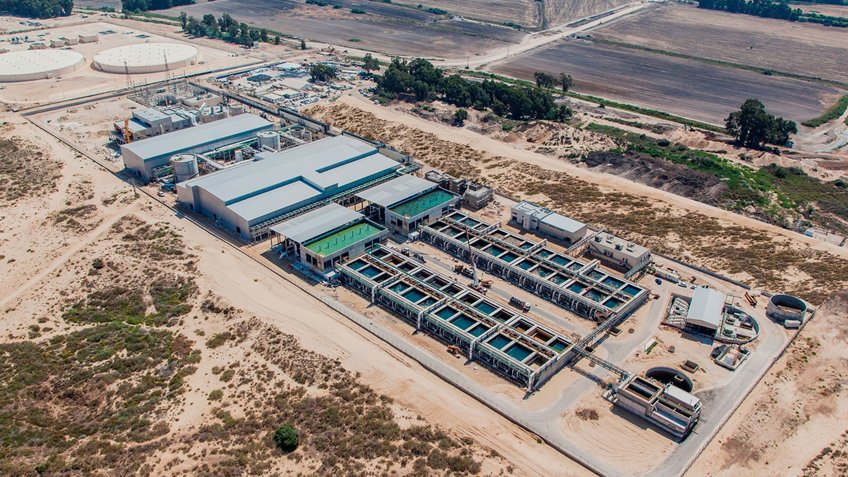Solution
The new desalination facility uses seawater reverse osmosis (SWRO) to provide water to Israel's national water carrier system. The desalination process sits in the middle of the treatment cycle; it is preceded by filtration and chemical dosing and is followed by re-mineralisation and final disinfection. The plant is comprised of two primary stages for desalination, each with its own instrumentation and control solutions. One stage creates water of the highest level for consumption, while the other creates water of a quality level suitable for industrial and commercial use.
Project development, engineering, programming, configuration and commissioning for the Soreq desalination plant was undertaken by Contel Automation & Control, a company which specialises in the supply of equipment and systems in industrial automation, air conditioning, refrigeration facilities control, building control systems and process control.
The foundation of the plant's control infrastructure – the PlantPAx process control system from Rockwell Automation – oversees some 11,000 I/O points. Contel Automation & Control deployed the PlantPAx process system as its programmable automation controllers offered increased speeds and could cater to multiple communication connections, which removes the need to split controllers. These savings were also realised by the company that undertook the construction of the facility – fewer controllers means less hardware, which means less wiring and engineering.
The PlantPAx process control system leverages extensive software packages and process libraries to provide a fully integrated architecture environment. This approach provides efficient and individual control of each of the primary redundant controllers, as well as optimising the software development process due to extensive libraries, add-on instructions for the controllers and process equipment and the ability to share code.
A closed-ring EtherNet/IP™-based communication architecture was adopted, as it offered increased safety and efficiency. If one communication line fails or is damaged, a backup is always available on a different path. Specific Allen-Bradley® I/O modules were also chosen for their embedded EtherNet/IP capabilities and their resilience to the elevated environmental temperatures. Since most of the equipment is located near the sea, where elevated levels of humidity and salt are present, many of the primary modules were treated with conformal coating.
PlantPAx operator workstations (OWS) provide a fully customised way to communicate with selected process areas and allow direct access to each controller's data points. This approach within a desalination plant system delivers many advantages. First, it streamlines the work of the controllers due to the lack of duplicate settings, allowing high working speeds; second it can considerably reduce errors; and finally it can help to increase reliability and safety at the facility.
“After a lengthy review process, we chose the process control solution of Rockwell Automation, with its emphasis on a central process control system, which is at the forefront of technology,” explains Jacky Ben Yaish, Engineering Manager IDE Technologies.
